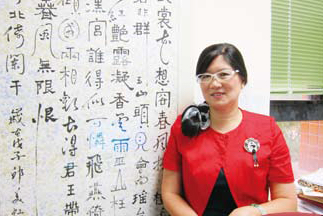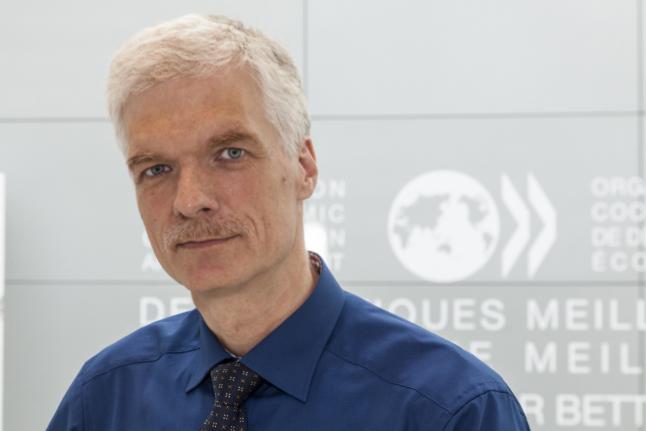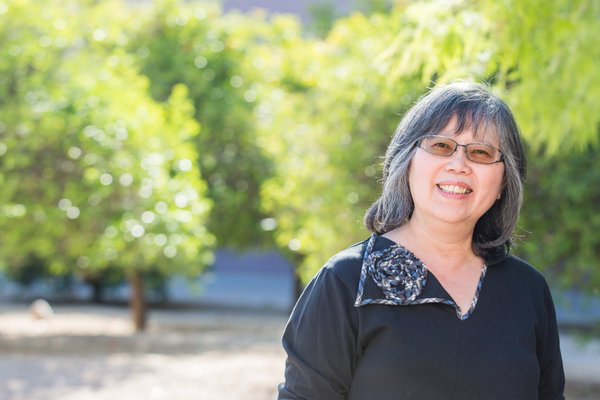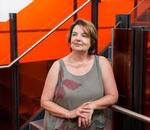Message from the President, Jan 2017
Invitation to the 2017 NARST International Conference
The 2017 conference is fast approaching and, with your help, I believe this conference will be another great success!

NARST President
The 2017 conference will be held at the Grand Hyatt San Antonio, San Antonio, Texas from April 22-25, 2017. The theme is Glocalization and Sustainability of Science Education Research and Practice, which aims to bring participants together to discuss the critical questions of how to face the global era, how to connect with one another through research and practice, and how to foster healthy and friendly learning environments for our future generations.
There will be two plenary lectures, one focused on the conference theme “glocalization” and one focused on learning for conceptual change in science education, paying special attention to how we can help our next generations to learn and live better in a sustainable world. In addition to the two plenary lectures, two presidential-sponsored symposia have also been organized: one on global and local educational issues and the other on cross-country collaborations for glocalized science education.
Plenary session #1: Glocalization and Sustainability of Science Education: Global and Local Views on Economy, Culture, Development, and Policy
Sunday, April 22, 1:00 – 2:30 pm

The first plenary speaker is Andreas Schleicher, Director for Education and Skills and Special Advisor on Education Policy to the Secretary-General, Organization for Economic Co-operation and Development (OECD). As a key member of the OECD’s senior management team, he supports the Secretary-General’s strategy, providing analysis and policy advice that advances economic growth and social progress. In addition to policy and country reviews, he oversees the Programme for International Student Assessment (PISA), the OECD Survey of Adult Skills (PIAAC), the OECD Skills Strategy, the OECD Teaching and Learning International Survey (TALIS), and the development and analysis of benchmarks on the performance of education systems (INES).
Plenary session #2: Challenges in Learning Science Concepts
Monday, April 24, 8:45 – 10:15 am
The second plenary includes two internationally well-known scholars, Micki Chi and Stella Vosniadou.

Michelene (Micki) Chi is the Dorothy Bray Endowed Professor in the Mary Lou Fulton Teachers College at Arizona State University (ASU). Her research focuses on developing theories about learning and pedagogy that are applicable to all domains of science, then translating them into instructional practice. She currently has three strands of work applicable to both pre-college and college-level instruction in STEM. The first strand is a theory of active learning or engagement called ICAP (Interactive, Constructive, Active, and Passive). The second strand is a theory about emergence causality that explains the robustness of many science misconceptions across domains. The third strand is her discovery of a new paradigm for learning from online videos that overcomes the limitation of active learning practices in asynchronous online learning contexts. Dr. Chi has published widely, in both cognitive science and learning science journals. Dr. Chi was elected to the National Academy of Education in 2010, and she received the Sylvia Scribner Award from the American Educational Research Association (AERA) in 2013, and the Wickenden Award from the American Society for Engineering Education for the best published paper of 2014. In 2015, she received the Thorndike Award from the American Psychological Association and, in 2016, the Distinguished Contributions to Research in Education Award from AERA. She was also elected to the oldest and most prestigious honorary society –The American Academy of Arts and Sciences – in 2016.
Her plenary speech is entitled “Teaching Emergence: An Attempt at Differentiating Science Concepts of Processes.”
Abstract: The robustness of many misconceptions about science concepts has been explained by the ontological commitment in students’ thinking to an alternative category of processes. That is, many science concepts of processes require an emergent kind of causal explanation whereas students’ misconceptions provide a sequential kind of causal explanation. In order to teach students to be able to give a correct causal explanation, we need to teach students an understanding of emergent processes. We are developing a module that attempts to help students differentiate emergent from sequential processes by contrasting everyday emergent and sequential processes. Students reveal difficulty in understanding the macro-level patterns of processes.

Stella Vosniadou is a Strategic Professor in Education at Flinders University, South Australia. Prior to that she served as Professor of Cognitive Psychology and director of the Cognitive Science Laboratory at the National and Kapodistrian University of Athens. She obtained her B.A. degree from Brandeis University, M.A degree from Columbia University and Ph.D. from Clark University in the USA. Dr. Vosniadou is interested in how conceptual development takes place and in what happens to our conceptual systems when exposed to counter-intuitive scientific and mathematical information. She is well known for her research in conceptual change for which she received the 2011 Distinguished International Contributions to Child Development Award from the Society for Research in Child Development. She is a member of Academia Europaea, a fellow of the International Academy of Education, and a fellow of the American Association for Research on Learning and Instruction. She served as chair of the Cognitive Science Society and President of the European Association for Research on Learning and Instruction.
Her plenary speech is entitled “The co-existence of intuitive and scientific understandings: Implications for the design of curricula and instruction.”
Abstract: The realization that students are not ‘tabula rasa’ when exposed to science concepts but have alternative conceptions (preconceptions, misconceptions) that may inhibit science learning, was one of the important outcomes of research in the 1980’s. Since then, cognitive science research has succeeded in describing the many kinds of conceptual changes that are necessary as individuals move from intuitive beliefs to learning science, mathematics, medicine, economics, etc. Throughout these years it has been implicitly assumed that, in the process of conceptual change, scientific explanations and theories replace intuitive understandings, particularly in the minds of experts. Although some researchers suggested that this may not be the case some time ago, it is only recently that a body of evidence started to be accumulated demonstrating the co-existence of intuitive conceptions and scientific explanations in a number of different knowledge domains (physics, biology, medicine, psychology, mathematics), different cultures (American, European, African, indigenous populations), and using different methodologies (interviews, questionnaires, reaction time studies, neuroimaging). In this presentation I will discuss some of this evidence and will draw its implications for the design of curricula and instruction.
Presidential-Sponsored Session #1: Global and Local Social, Cultural, Language, and Political Aspects for Science Education
The presenters for the first presidential-sponsored session are Larry Bencze of University of Toronto; Lyn Carter of Australian Catholic University, Melbourne; Sonya Martin of Seoul National University; Christina Siry of University of Luxembourg; Hsiao-Lin Tuan of National Changhua University of Education, Taiwan; Jinwoong Song of Seoul National University; and Jiyeon Na, Chuncheon National University of Education, Korea. The presenters will bring cases viewed from an international perspective and discuss ways of linking the global trend of science education research and practice with local (contextual) needs.
In the first presentation, Larry Bencze and Lyn Carter will discuss the need for educators to share with students socio-political considerations as they relate, locally and globally, to relationships among powerful individuals and groups and fields of science, technology, engineering and mathematics and to encourage and enable students to actively address their concerns about such relationships. In the second presentation, Sonya Martin and Christina Siry will discuss findings from research on science teaching and learning in multilingual and multicultural contexts that highlight both the relationships and disconnects between science education research from local contexts and those in global contexts and vice versa. They will make recommendations about ways that researchers can learn from international research findings while still paying attention to the locally contextualized nature of science education. Next, Hsiao-Lin Tuan will present research published by various Taiwanese scholars and several local projects to reflect upon the global and local impacts of science education. In the fourth presentation Jinwoong Song and Jiyeon Na will explain how science classroom interactions in Korea (e.g. classroom culture, silent participation) are shaped by East Asian cultures and talk about the potential of using technology-based approaches in response to new glocal changes. As the discussant, Larry Yore will provide his insightful comments on the session.
Presidential-Sponsored Session #2: Cross-Countries Collaborations for a Glocalized Science Education
The session features two cross-country partnerships and highlights researchers’ experiences and recommendations for adapting internationalized science education in their respective countries. The first is a collaborative partnership between the US (Joe Krajcik) and Finland (Jari Lavonen), focusing on ways of adapting project-based learning (PBL) to make sense of phenomena and design solutions to problems making use of big ideas, scientific and engineering practices and crosscutting concepts from A Framework for K-12 Science Education and the Next Generation Science Standards. Chemistry and physics teachers from both countries worked collaboratively with science educators to design PBL materials that will engage high school students in meaningful tasks. Developing a professional learning community in each country, in which ideas are exchanged regarding what works and what doesn’t, was key to the implementation of the program. The second is a comparative collaboration among Taiwan (Mei-Hung Chiu), Israel (Rachel Mamlok-Naaman), and Turkey (Mustafa Sozbilir). It refers to an International Standards for Chemistry Education (ISCE) project with 10 task members (including Australia, Chile, Japan, Malaysia, the Netherlands, and US) sponsored by the International Union of Pure and Applied Chemistry (IUPAC). The goal of the project was to develop operational definitions, adopt them for analyzing curriculum standards, and present examples for macroscopic, sub-microscopic, symbolic representations and interpretations of the scientific phenomenon. George DeBoer will discuss the growing trend toward international science education standards. He will argue that if there are science knowledge and skills that all students should have to be effective citizens of the world, then countries should be encouraged to work together to identify what that knowledge is and what those intellectual skills are. As the discussant, Avi Hofstein will provide his insightful comments on the session.
Organizational Reform
In the process of transitioning to a governance organization, in October 2016, the Board approved the restructuring of several committees in order to meet NARST’s changing needs. This new structure will take effect at the end of the 2017 Awards Luncheon. The new structure involved reorganizing the External Policy and Relations Committee into three sub-committees: (1) Science Education Policy Sub-committee, (2) Partnerships and Collaborations Sub-committee, and (3) NARST Conferences and Cooperation Sub-committee. The International Committee will be re-organized into five sub-committees for: (1) NARST Scholarship Program, (2) Linking Science Educators Program, (3) Mentor Program for ESERA Summer School, (4) Doctoral School Program, and (5) International Science Education Recognition Program (ISER). The Membership and Elections Committee will be separated into a Membership Committee and an Elections Committee, and the Elections Committee will be renamed the Nomination Committee. The Publications Advisory Committee will be re-organized into three sub-committees: (1) Research for Practitioners and Policymakers Sub-committee, (2) Scholarship Sub-committee, and (3) NARST Conference Sub-committee. The Research Committee will be reorganized into five sub-committees: (1) Pre-Conference Workshop Sub-committee, (2) Sandra K. Abell Institute for Doctoral Students Sub-committee, (3) NARST-Sponsored Sessions at NSTA Sub-committee, (4) Research Interest Group Sub-committee, and (5) NARST Liaison Position Sub-committee. In addition, the Board also approved the creation of two new standing committees, the Website Standing Committee and the Graduate Students Committee, to improve the functions and services of the organization to its membership.
Concluding Remarks
Yet again, it is about the time of the year when so many of us sign up as volunteers for NARST. It is our hope that through your selfless contributions, we can make NARST bloom not only in terms of its membership but also in terms of our research findings and practice. This is a great opportunity for yourself, your colleagues, your students, and/or your friends to work together and contribute to a greater good, so please sign up again!
Lastly, I would like to express my respect to and appreciation of the Board, who worked tirelessly with their committee members and colleagues to move NARST from an operating organization to a governance organization, and to make NARST’s impact on the future of science learning and teaching sustainable and glocal. I very much look forward to meeting with all of you at the NARST 2017 conference in San Antonio!
